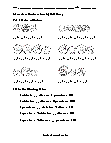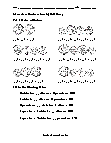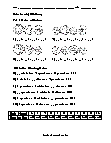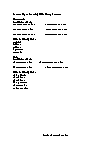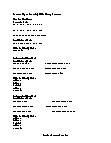Counting Money Worksheets
How do banks count large amounts of money? A bank is a financial institution that accepts deposits, channels those deposits into lending activities, makes loans, pays checks, and also safeguards, transfers, and exchanges money. A teller or cashier is in charge of counting the amount of money and is also the most relevant job at the bank. They are supposed to quickly count the exact amount of cash and detect counterfeit, which is impossible without a banknote machine. The machine calculates the amount, not the pieces, and it works as a helping hand. Tellers are always busy. They have customers to deal with every minute while doing other jobs, like counting the money as well. It may get hard at times, but with the right machine and technology, they get their work done in no time. They don't set the device by pressing many buttons, and usually, the only thing that they do is count money with the counting machine. However, tellers do set what currencies should count since they handle many coins every day. Tellers don't have to press buttons if they set their machines with an auto currency function setting. All they have to do is place the money, and then the device itself intelligently decides the currency. This way, tasks are done faster and make the teller's life easier. The Benefits of Having a Bank Account - It is risky to keep all your money with you in cash. Chances of losing or getting robbed are higher that way. Banks keep your funds safe. Funds are secured since banks follow strict rules and regulations. It is convenient to have a bank account instead of carrying cash with you all the time. You even get help from your bank's financial professional to build a better financial future.
-
Independent Practice 1
Students practice counting change and determine how much change they need. The answers can be found below.
View worksheet -
Independent Practice 2
Another 12 money counting problems. The answers can be found below.
View worksheet -
Homework Worksheet
Reviews all skills in the unit. A great take home sheet. Also provides a practice problem.
View worksheet
Al's Pocket Change
Al has 100 coins, nickels, dimes and quarters only. They
total $13. He has 3 times as many nickels as he does dimes. How many of
each denomination of coin does he have?
He has 48 nickels, 16 dimes and 36 quarters. 5(3d + 10d + 25(100-4d)) = 1300

